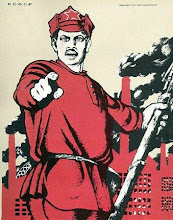Scene from I, Daniel Blake (The Atlantic)
I wrote on privacy a few days ago, and the darn idea has become obnoxiously intrusive. Everywhere I go, there privacy is, hanging out in the background, sometimes in the foreground, sometimes jostling my elbow, always humming some horrid tune that I can't subsequently purge from my mind.
( http://fatherdaughtertalk.blogspot.com/2017/01/privacy.html)
( http://fatherdaughtertalk.blogspot.com/2017/01/privacy.html)
The Atlantic has a review of the film I, Daniel Blake:
I, Daniel Blake Satirizes a Brutal BureaucracyKen Loach’s new movie, which triumphed at last year’s Cannes Film Festival, is a Kafkaesque tale of one man navigating Britain’s welfare system.
Daniel Sims
https://www.theatlantic.com/entertainment/archive/2017/01/i-daniel-blake-satirizes-britains-brutal-bureaucracy/513806/
Daniel Blake is a carpenter living in Newcastle, England. He’s 59 years old, he’s recently suffered a heart attack, and his doctor is concerned enough about his health that she’s ordered him not to exert himself as he recovers. A government evaluation, however, has deemed him fit for work and ineligible for disability benefits—an illogical and brutish bureaucratic decision that slowly begins to eat away at his life. Ken Loach’s I, Daniel Blake is a typical slice of socio-political realism from the legendary director, but it’s tinged with an infuriating, Kafkaesque sense of humor, as Daniel tries to explain his administrative predicament to a legion of unfeeling government employees.
The film is offering a pointed take on the current state of the United Kingdom’s welfare system, one Loach believes is designed to turn people away by making it as humiliating and arcane as possible...
[...]
Loach’s crucial point is that Daniel’s many opponents in the Department for Work and Pensions are not monsters, merely cogs in a faulty machine. In one of I, Daniel Blake’s most telling scenes, a worker finally takes pity on Daniel as he tries to fill out a form online, hovering over his shoulder and directing him, until she is taken aside by her manager and loudly chastised. If she gives one person special attention, she’s told, then the whole system collapses—better to have unfairness for all, the implication goes. Loach makes his political points with brutal directness, but I, Daniel Blake comes at a particularly brutal time for the world, making it all the more important to see.
What is the deal with Bureaucracies?
Or, putting it slightly differently, what is the phenomenonology of Bureaucracies?
I mean, in the review there is the description:
...byzantine Department for Work and Pensions..."Byzantine". How redolent of Kafka.
The review also mentions the film Brazil, and if you have seen that film, it is Kafka's The Trial with amphetamines.
But there all the same, aren't they? All these stories and films about bureaucracies? The Trial, Brazil, Ikiru... vast agglomerations of working cubicles and regimented choreographed movements in and out... rather like the nurseries in The Matrix, too, which sort of specialized in the bureaucratization of aliens.
Read the last paragraph which I quoted above. The remark about "special attention" gives us our hint.
Bureaucracies have large numbers of people working with even larger crowds of people. The only way you can get through the work load is regimentation: treat everyone alike.
That means do not open up to anyone, do not form even a crude and rudimentary "I and Thou" relationship. If you attempt such and "I and Thou" relationship, that is giving special attention and "...the whole system collapses."
The only way to give special attention is to hire more functionaries. For example, in a school, if we wanted to actually give students special attention, we would have to have smaller classes and more teachers... but who would pay for it?
In the medical profession we have a cultural mythology to explain why medical professionals are remote. We believe - quite correctly - that if doctors and nurses formed special relationships with each patient that was sick, then the doctors and nurses would be opening themselves up to endless grieving and sorrow.
Of course, not all patients are all that sick. And a lot of medical people are just remote, because the medical system is a type of bureaucracy and they have to process a large number of people, so some doctors tend to treat people as numbers, just to clean out the old in-box.
We all do it.
Kafka felt it during the time of the Austro-Hungarian Empire when he wrote The Trial. The Empire paid little or no attention to minorities' desires; the Austrians were oblivious and the Magyar Hungarian aristocracy was actively inimical.
Minorities were abstractions upon the imperial map.
And Kafka was a Czech and Kafka was Jewish. There would never be any special attention between him and the Empire.
Now lets us think how we are to be in this world with growing populations. How are we supposed to be able to escape the alienation of extreme privacy?
When do we open up and when do we stay behind closed doors?
How may a government treat its people as human beings and not as (1) annoying intrusive species, or (2) guinea pigs for tests based on political ideologies?
--


















No comments:
Post a Comment